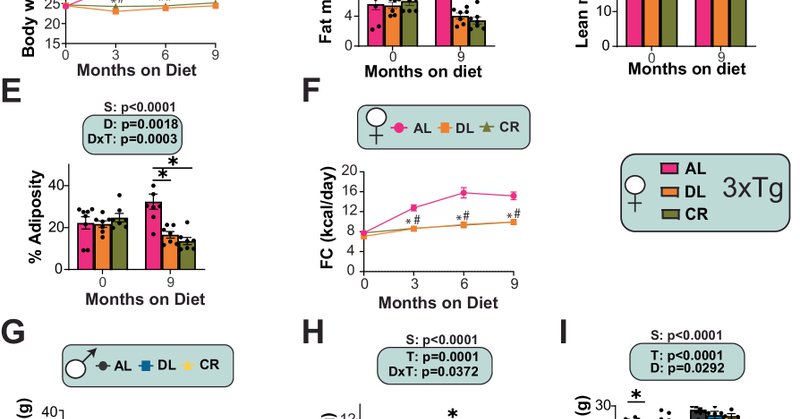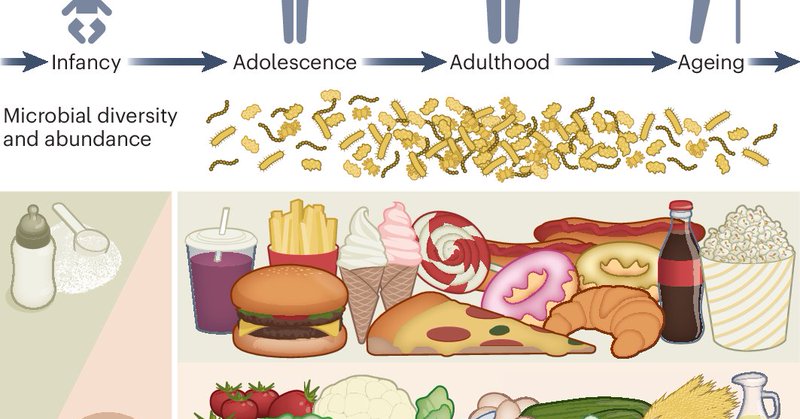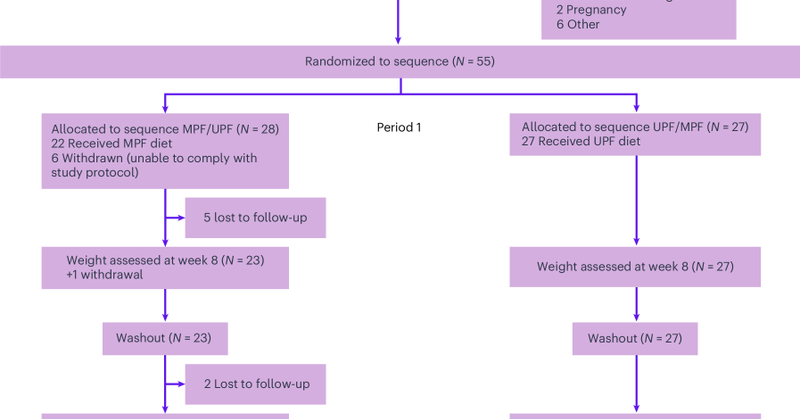
Marit Kolby
@MaritKolby
Followers
5K
Following
6K
Media
87
Statuses
4K
Food scientist and nutritional biologist. Nutrition science is complicated, but eating healthy is easy. Allow breaks from food and avoid the ultra-processed.
Oslo, Norway
Joined May 2015
Did we get dietary saturated fats all wrong? The #HADLmodel provides a new understanding and an opportunity to get it right. THREAD👇👇👇.@simondankel @kariannesve
24
90
278
Really enjoyed our talk, @TyRBeal .Let's hope this can add to the somewhat confusing discussion on UPFs (or ultra-processed products, as we argue for). It's not about salt, sugar and (saturated) fat. It's about evolutionary mismatched foods.
Ultra-processed foods don’t just make you overeat—they reprogram your biology. Food scientist and nutritional biologist @MaritKolby reveals how they disrupt your gut, block nutrients, and fuel inflammation—and the simple swaps to reverse the damage. Apple:
0
0
2
". a higher contribution of unhealthy plant foods was associated with a higher prevalence of MetS . and elevated TAG". "Plant based diet", as a term for guiding food choices, is useless.
pubmed.ncbi.nlm.nih.gov
Prior studies have shown that plant-based diets are associated with lower cardiovascular risk. However, these diets encompass a large diversity of foods with contrasted nutritional quality that may...
0
0
3
🎧 What’s wrong with ultra-processed diets?. That’s the question I got to dig into with @TyRBeal 🙏.
open.spotify.com
The Ty Beal Show · Episode
1
2
2
"Overall, our results suggest that both when and how much we eat may influence the development and progression of Alzheimer’s disease". We also have human studies demonstrating that more breaks from foods is an achievable path to better health.
nature.com
Nature Communications - Caloric restriction improves Alzheimer’s Disease outcomes in mice, but this diet not only reduces calories, but imposes a prolonged fast between meals. Here, the...
1
2
9
Our brains on UPF diets. ". high UPF intake corresponded to extensive gray matter compromise, including reduced subcortical volumes with right-hemispheric predominance, and widespread cortical deterioration in volume, thickness, and surface area.".
pubmed.ncbi.nlm.nih.gov
These findings advance epidemiological evidence on the relationship between UPF intake and neurodegenerative outcomes, suggesting that dietary assessment may serve as a relevant consideration in...
1
0
2
Once again, the necessary change is grassroot-driven, not government-driven. This makes me hopeful.
More valuable data from Levercliff’s nationally representative UK consumer surveys: nearly 19 million adults have already started avoiding UPFs, and another 9 million are considering doing so. Awareness of UPFs has also climbed to 78% as of June 2025.
0
1
16
"‘It ain’t what you don’t know that gets you into trouble. It’s what you know for sure that just ain’t so". Great quote to highlight the shortcomings of applied nutritional science.
"The peril of preconceived narratives" was just published in @Cell_Metabolism with @vdarcey in response to the fall out from our recent study that failed to show a significant brain dopamine response to ultra-processed milkshakes similar to highly addictive drugs. Free for the.
0
1
4
The processing level of the diet matters a lot more than other factors typically emphasized by guidelines. Like dairy fat, which doesn't matter at all.
8-week diet RCT: a minimally processed diet causes more weight/fat loss and better health biomarkers than an ultra-processed diet, even when both meet UK dietary guidelines. Suggests that guidelines miss important health-relevant food properties. Congratulations @SamuelDickenUK.
0
0
10
Will the misrepresentation of dietary fat ever end?
nature.com
Nature Metabolism - This Review provides an overview of the interplay between host diet and the gut microbiota, and how this affects brain function.
1
1
6
Great work! You can lose weight on a "healthy ultra-processed diet". But more on a minimally processed. And drop the fatigue, constipation, sleep issues and infections ; ).(I know it's a lot to ask. But really hope they drew blood for nutrient analyses).
nature.com
Nature Medicine - A free-living trial in people with overweight or obesity found that minimally processed diets led to greater weight loss and cardiometabolic improvements than ultraprocessed diets...
3
3
27












